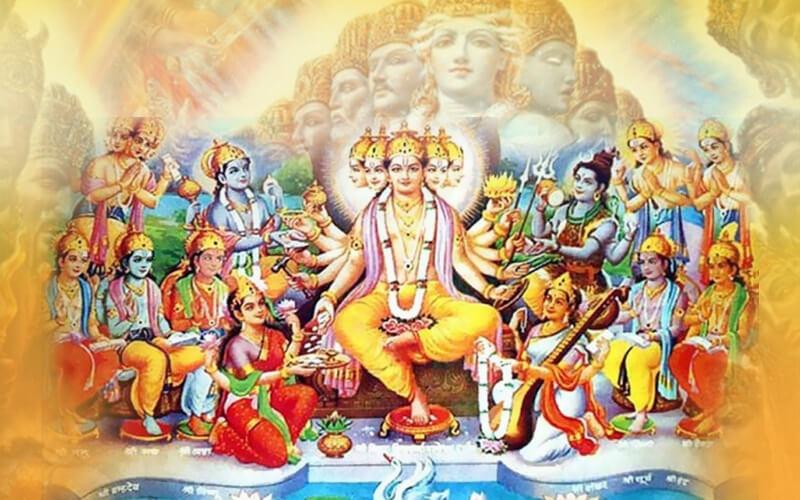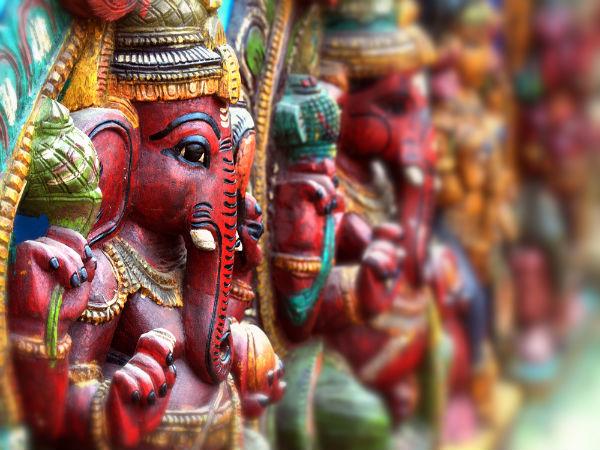Tagged: Caste System, Hinduism, Hinduism misinterpreted, idol worship, Karma, Misconceptions, monolithic, Myth, Polytheism, religion, Spirituality
- This topic has 0 replies, 1 voice, and was last updated by .
-
AuthorPosts
-
March 18, 2024 at 11:40 am #1883Up::1
With billions of Hindu followers worldwide, Hinduism is not just a religion but a belief and indeed a way of life that addresses different facets of human existence, such as spirituality, ethics, rituals, and cultural values. The uniqueness of this profound religion is because of the diversity of philosophical thoughts that it encompasses. Every aspect of Hinduism is deeply rooted in the ideas of Dharma, Karma, self, and the ultimate purpose of life, which makes it a larger-than-life religion. For centuries, Hinduism has significantly impacted several lives in incredible ways due to its vastness, immensity, and cultural influence. However, this deeply enriching religion has been misconstrued as a myth, a fiction, and a cultural phenomenon based on dogmatic principles. Let us look at some of the biggest misconceptions about Hinduism and gain an understanding.
Hinduism a Monolithic religion
It is an irony that “Hinduism,” a religion that is so ancient and multifaceted, is viewed as a monolithic religion. Hinduism is unfortunately considered a single entity without understanding its diverse nature and its historical evolution. Within the western thinking framework, Hinduism is considered a single and homogenous religion without even recognizing its rich tapestry of history, customs, multiple beliefs, practices, complexities, and rituals. Indeed, the concepts of God and faith have been incorporated into Hinduism based on diverse theories and views. Religion in Hinduism is celebrated in the way an adherent chooses based on different ideologies connected to concepts such as karma, dharma, and reincarnation. Spirituality in Hinduism is not based on a certain set of rules; it is a result of several philosophical aspects and ideas.

Polytheism religion
Divinity in Hinduism is often misunderstood as polytheistic due to the multifaceted nature of worshipping multiple deities in different communities. The concept of believing in separate gods is the most misinterpreted idea about Hinduism. Since our temples are adorned with numerous images and statues of different gods and goddesses, many associate the idea of diverse imagery of deities with Hinduism. There is an evident lack of awareness of the concept of One with the Divine and that all deities are different manifestations of the ultimate reality, Brahman (Atman). Hinduism is not polytheistic but pantheistic, where Brahman is considered the single ultimate reality and the very essence and fundamental substance of the cosmos. When we talk about the divine element in the context of Hinduism, it is not just limited to any form but is inherent in all existences in the universe. Since Hindu philosophies are broad, expansive, and a synthesis of several spiritual and theological interpretations and religious meanings, polytheism is almost like a given label to it.

Synonymous with Caste System
The caste system is a social reality in certain communities in India; nonetheless, this has been misinterpreted as an inherent aspect of Hinduism. It is often considered that Hinduism endorses and supports the caste system. Historically, the caste system has been there for centuries in Indian society, and it has evolved due to several social, economic, and political reasons. Hinduism as a religion was equally prevalent in ancient times. Some of the teachings inscribed in Hindu texts, such as the Vedas and Upanishads, do have references to social duties and obligations, but it does not establish any relationship between the caste system and Hinduism. The caste system is a complex social ideology within the context of Indian civilization that has drawn extreme criticism and discrimination from many Hindu adherents and scholars. The caste system in India does affect certain sects in the context of social interactions, equality, practices, and accessibility to resources. This has led outsiders to assume and rather believe that Hinduism is the reason behind this without even realizing the breadth, depth, vastness, and diversities of this old-age religion.

Confined to Idol worship
Gods and goddesses in Hinduism have been misconstrued as physical objects or statues that followers and devotees venerate. It is a perception that Hinduism is a religion that solely believes in idol worship due to the visual representation of symbols used in worship, idol worship in temples, rituals associated with idols, and the selective focus of outsiders. In Hinduism, idols are worshipped, but they represent the higher divine. Hinduism devotees all around the world focus on symbols and images to focus their minds and express their devotion through meditation. Devotees worship idols to connect with the divine aspect by developing emotional bonds with their deities. Often, westerners reinforce the idea of idol worship in the context of Hinduism by portraying the religion and faith in movies, documentaries, motion pictures, and other television shows. Hinduism is about enquiring about the very existence of life, the universe, and the self by connecting with the supreme being. This selective attention lacks contextual understanding and the philosophies behind Hinduism.

Limited Understanding of Karma
Once more selective awareness has downplayed the central aspect of Hinduism, namely Karma. The popular belief is that past actions solely determine one’s fate. The cause-and-effect principle of karma has been confined to good and bad actions as rewards and punishments. Hinduism is multifaceted, and thereby the cause-and-effect ideology is influenced by several factors such as intent, context, societal reasons, and interconnectedness rather than judgement. Hinduism teaches that every individual has the power to shape their destiny based on their current actions. The role of reincarnation is closely linked to karma, and unfortunately, it is viewed as retribution and reward. This misconception can be dispelled if one understands the different philosophical frameworks, such as Vedanta and Samkhya. According to Hinduism, collective karma is also recognized, wherein a society or a community incurs karmic consequences based on collective actions and deeds.

Addressing misconceptions around Hinduism needs education, awareness, right communication, critical thinking, respect, fostering cultural sensitivity, providing correct information, and addressing biases and fallacies.
-
AuthorPosts
- You must be logged in to reply to this topic.